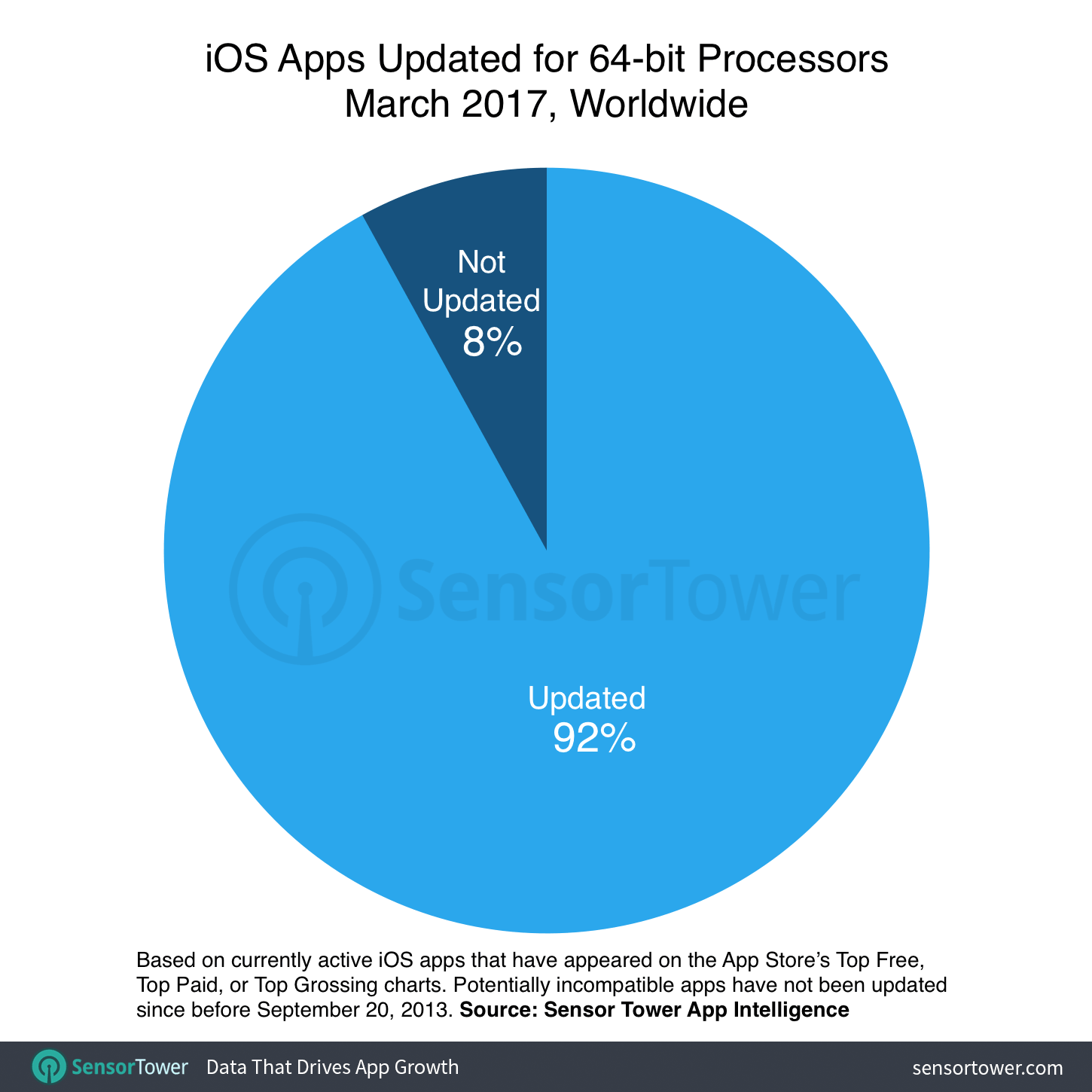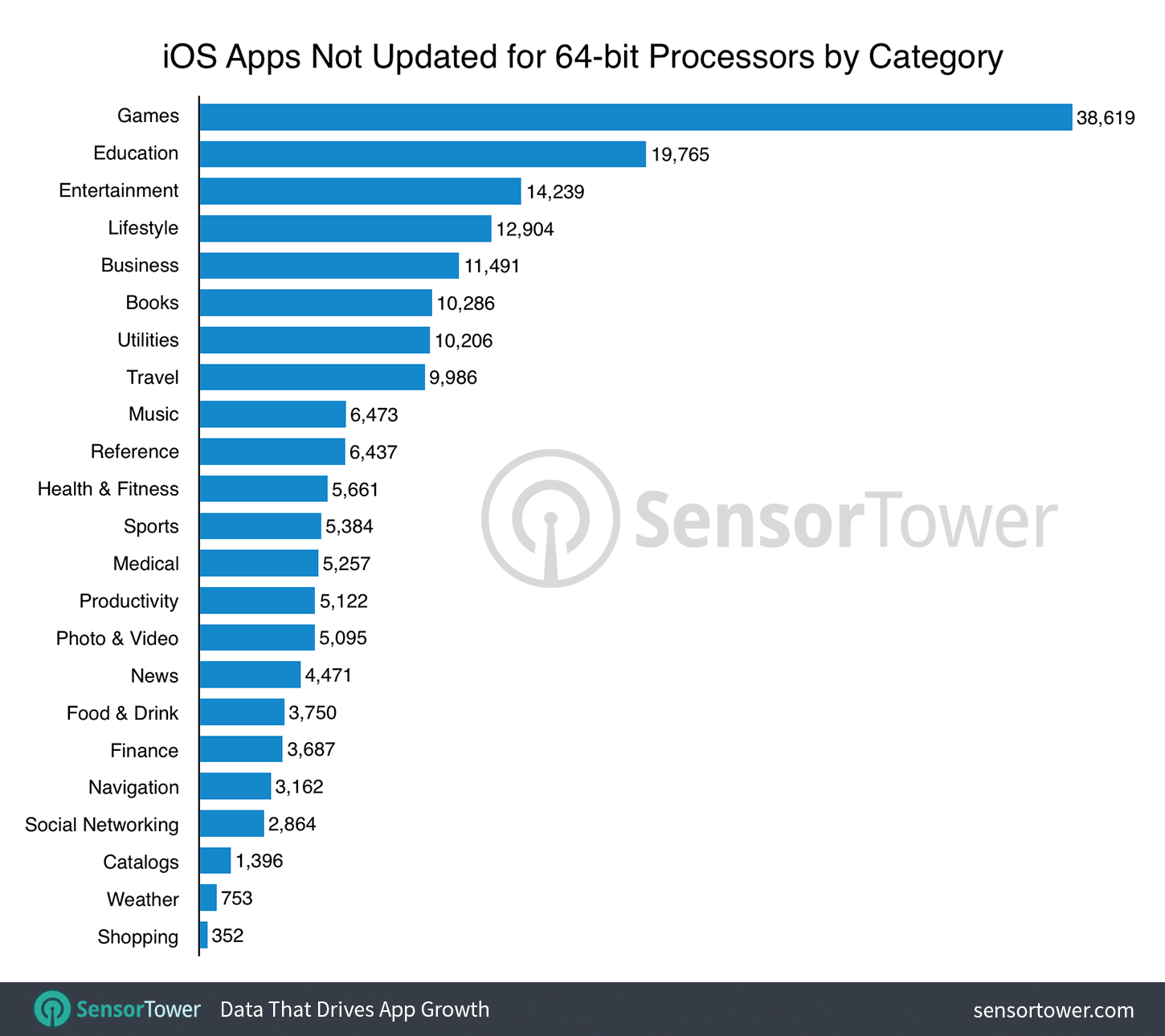2026 State of Mobile is Live!
Mobile App Insights · Oliver Yeh · March 2017
Nearly 200,000 Current Apps Could Be Incompatible with iOS 11
Sensor Tower data shows 8% of current iOS apps may not run on Apple's next major mobile operating system, according to beta hints.

Early last month, iOS developers working with the beta version of iOS 10.3 discovered a warning dialog stating that apps not written to take advantage of the 64-bit processors found in every new iPhone since the iPhone 5S "will not work with future versions of iOS". This led developers to assume that Apple would be dropping support for 32-bit apps in iOS 11, expected this fall, and Sensor Tower to investigate just how many apps might be affected by this change if it comes to fruition.
Based on App Intelligence data, our analysis of currently active apps that have ranked in either the top free, paid, or grossing charts at some point since their release shows that this number stands at approximately 187,000 or about 8 percent of the roughly 2.4 million apps on the App Store worldwide.

The topic of "outdated" apps isn't new; we first looked into the amount of seemingly abandoned apps on the App Store last year and found that 16 percent of apps hadn't been updated in more than three years. Apple has been working to purge its platform of broken or unsupported apps in recent months, separately from its initiative to encourage 64-bit compatibility. We found that last October, the company removed at least 47,000 apps from the store.
64-bit apps joined the iOS ecosystem with the launch of Apple's A7 processor in the iPhone 5S on September 20, 2013. Apple initially introduced guidelines calling for all new iOS apps submitted for approval to support 64-bit processors by February 1, 2015 and stated that it would also reject 32-bit-only app updates as of June 1, 2015. It's likely that Apple is aiming to reduce the "bloat" and increase the performance of future iOS versions on new 64-bit devices with this (potential) move.
Games Lead Potentially Affected Apps

Given that games comprise the single largest category of iOS apps worldwide, it's not surprising that they would have the largest representation among the total number of potentially obsolete apps we looked at. As shown in the chart above, they accounted for about 38,600 of the approximately 187,000 apps not updated for 64-bit processors, or 20.6 percent of the total.
The Games category was followed by Education at 10.6 percent, Entertainment at 7.6 percent, and Lifestyle at 6.9 percent to round out the top five largest categories among the apps we found.
Developers Can Still Update, But Will They?
It's important to note that the expectation that Apple will remove 32-bit app support in iOS 11 is based on beta software, so we won't truly know if these apps will be relegated to the history books until the latest version of iOS launches this fall. Even then, it's possible that the developers of these apps, who are keeping them active on the store, could decide to update them before (or even after) that point.
For many potentially affected apps, especially those with very few downloads, even the (relatively) small amount of effort required to get them up to snuff may not be a worthwhile investment for their developers. For others, perhaps it will be requests from loyal users that prompt an update. Either way, it will surely be a topic of discussion within the iOS development community once Apple reveals more in the coming months.
